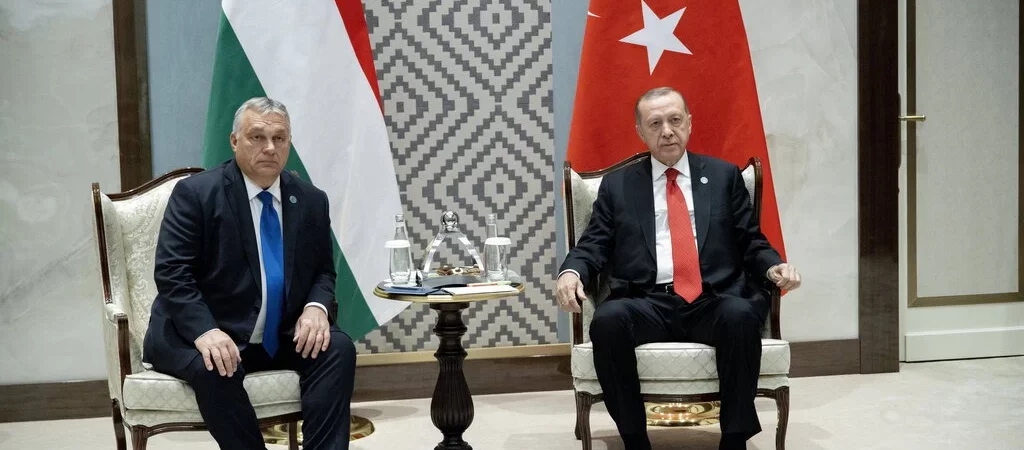Eleven Hungarian universities are in the world’s top, Balázs Hankó, the state secretary of the Ministry for Innovation and Culture, said on the opening of the 23rd Educatio Exhibition in Budapest on Friday. After meeting Turkey’s education minister, Mahmut Ozer, on Friday, Foreign Minister Péter Szijjártó said the government’s goal was to make Hungarian higher education competitive internationally, so it must be made attractive to foreign students.
Mr Hankó added that out of ten university students 8 receive a scholarship from 70 billion HUF. The support concerns 170 thousand students.
At a joint press conference, Szijjártó said the government had been working on making its higher education system competitive since 2010, and Hungary is now the 12th most popular foreign destination for Turkish students, with more than 1,000 attending courses here this year. Also, 16 Hungarian universities have Turkish partners with a constant exchange of lecturers and students. Two universities run a Turkology department, while Hungarian studies are available at Ankara University, he noted.
Cooperation will be broadened to encompass secondary education as well, with an improvement in the quality of vocational training on the cards, he said. The sides signed a higher education cooperation agreement for the period 2023-2025. The government is increasing the number of scholarship places available to Turkish students from 150 to 200 each year, and medical and nuclear training is also included in the agreement.
Here is their joint press conference:
Szijjártó called Hungary-Turkey ties “strategic”, and, referring to the war in Ukraine, said relations were all the more important in current times of uncertainty. Turkey, he added, was the only country to have taken “promising steps towards peace” by shepherding the deal to resume grain deliveries to Ukraine, and he said Hungary requested that Turkey carry on pursuing its mediation efforts with the aim of ending the war as soon as possible.
Responding to a question about the withdrawal of Hungary’s Erasmus funding in 2024, the minister said “new symptoms of Hungarianophobia are starting to appear” in the European Commission. He dismissed the decision to suspend funds for Hungarian universities run by foundation as “outrageous and without grounds whatsoever”.
Szijjártó said people with government positions and responsibilities sat on the boards of western European universities, yet in Hungary’s case this was seen as a problem, and he said this amounted to “double standards”. Further, Hungary, when drawing up its conflict-of-interest guidelines, had adhered to EC rules in their entirety, he added.
Meanwhile, on the subject of the planned big increase in transit fees for oil shipments in Croatia, the minister said Hungarian oil and gas company MOL had concluded a temporary three-month agreement regarding the matter, and hopefully fair long-term agreement would be reached in the meantime. The government is prepared to turn to the European authorities if attempts in this direction do not succeed, he added.

Read alsoErdogan’s wow: Turkey remains a safe background to Hungary’s energy security
please make a donation here
Hot news
What happened today in Hungary? — 26 April, 2024
Unemployment stops rising in Hungary
Foreign workers at Wolt Hungary: courier and restaurant manager chime in – and they are not happy
Hungarian FM Szijjártó: We won two battles in Brussels
Bizarre developments: Orbán cabinet now targets rainbow-coloured items!
Hungarian defence minister: Most important thing is peace



